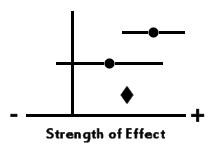Director of The Nordic Cochrane Centre
Professor Peter C Gøtzsche graduated with a Master of Science in biology and chemistry in 1974 and as a physician in 1984. He is a specialist in internal medicine; worked with clinical trials and regulatory affairs in the drug industry 1975-1983, and in hospitals in Copenhagen from 1984 to 1995. He cofounded The Cochrane Collaboration in 1993 and established The Nordic Cochrane Centre the same year. He became Professor of Clinical Research Design and Analysis in 2010 at the University of Copenhagen. He is a strong campaigner for clinical data transparency.
In 2007, Peter lodged a complaint to the European Ombudsman after the European Medicines Agency (EMA) refused access to clinical study reports and corresponding trial protocols for two anti-obesity drugs. In his complaint to the Ombudsman, he claimed that concerns for patients’ welfare should be given priority over concerns for the commercial interests of the drug industry. The EMA eventually followed the Ombudsman’s recommendation to disclose the documents and overhauled its complete transparency policy to give the broadest possible access to medical data.
![]()
 Their logo shows one of their secret weapons – the forest plot. Rather than rely on p values which are only yes/no, they measure the strength of the signal using a number of parameters. Then they plot the result with mean and the 95% Confidence Interval – the range of values found in the study. Just looking, you can see the top study found positive results. The lower study was weak, and crossed the line of no effect. The diamond is the weighted mean of all the studies. So using a variety of methods, they found ways to compare studies, intuit when studies were missing, display comparisons of studies in easily understood ways, and more [including going after the raw data]. It’s a remarkable accomplishment, and Peter C Gøtzsche has been a major force in making it happen.
Their logo shows one of their secret weapons – the forest plot. Rather than rely on p values which are only yes/no, they measure the strength of the signal using a number of parameters. Then they plot the result with mean and the 95% Confidence Interval – the range of values found in the study. Just looking, you can see the top study found positive results. The lower study was weak, and crossed the line of no effect. The diamond is the weighted mean of all the studies. So using a variety of methods, they found ways to compare studies, intuit when studies were missing, display comparisons of studies in easily understood ways, and more [including going after the raw data]. It’s a remarkable accomplishment, and Peter C Gøtzsche has been a major force in making it happen.
 Among the specialties in Medicine, when Gøtzsche wrote a book, he featured psychiatric drugs in two chapters. In the video below, he says what we know, "What I’ve seen in Psychiatry is worse than what I’ve seen anywhere else." His book is Deadly Medicines and Organised Crime: How Big Pharma Has Corrupted Healthcare, and he’s not kidding with the title. Gøtzsche is neither crackpot nor zealot. He’s a scientist who gives his life to something of value. Here’s a recent conference at Dartmouth, introduced by BMJ Editor, Fiona Godlee.
Among the specialties in Medicine, when Gøtzsche wrote a book, he featured psychiatric drugs in two chapters. In the video below, he says what we know, "What I’ve seen in Psychiatry is worse than what I’ve seen anywhere else." His book is Deadly Medicines and Organised Crime: How Big Pharma Has Corrupted Healthcare, and he’s not kidding with the title. Gøtzsche is neither crackpot nor zealot. He’s a scientist who gives his life to something of value. Here’s a recent conference at Dartmouth, introduced by BMJ Editor, Fiona Godlee.
“I call psychiatry the drug industry’s paradise.” Nice lead in. I prefer to call psychiatry “another example of the physician sell out of the business model”.
Greed is an antisocial flavor, just like some other traits, like gluttony, envy, sloth, wrath, lust, and pride.
There’s an APA slogan for recruiting docs to join their organization for 2014:
“The 7 deadly sins, we have ’em in the DSM 5 scattered about, join us to find them and understand them, and maybe benefit from them too!”
Who’s the poster child, Mr Magoo!?